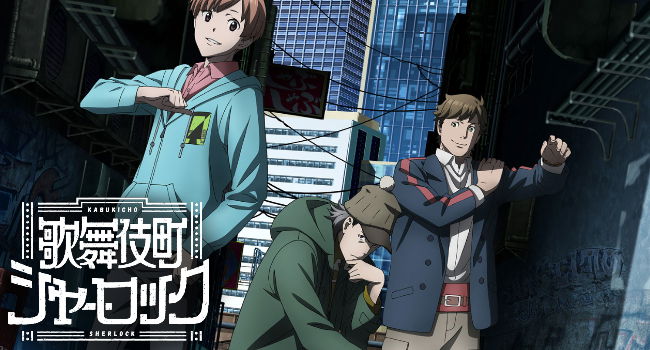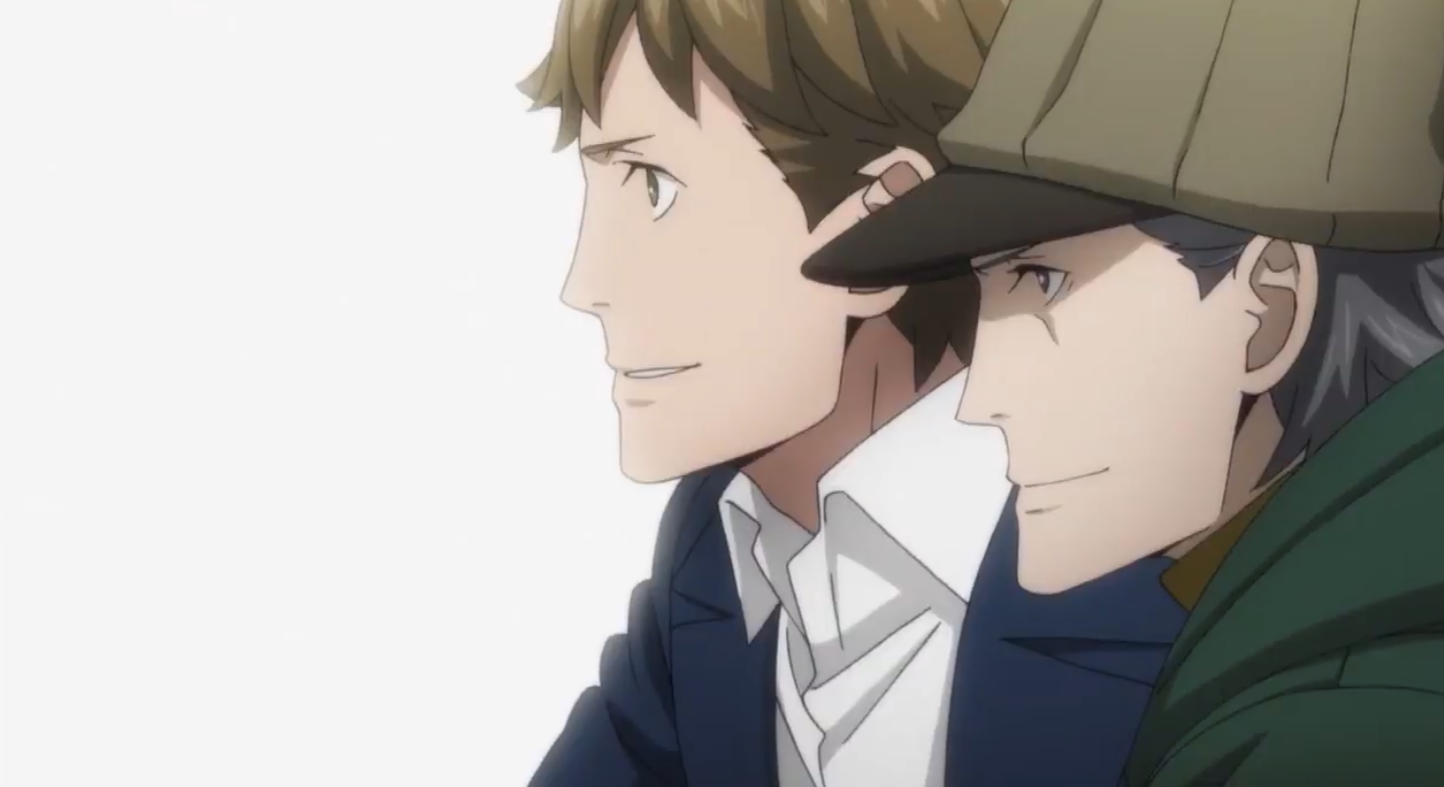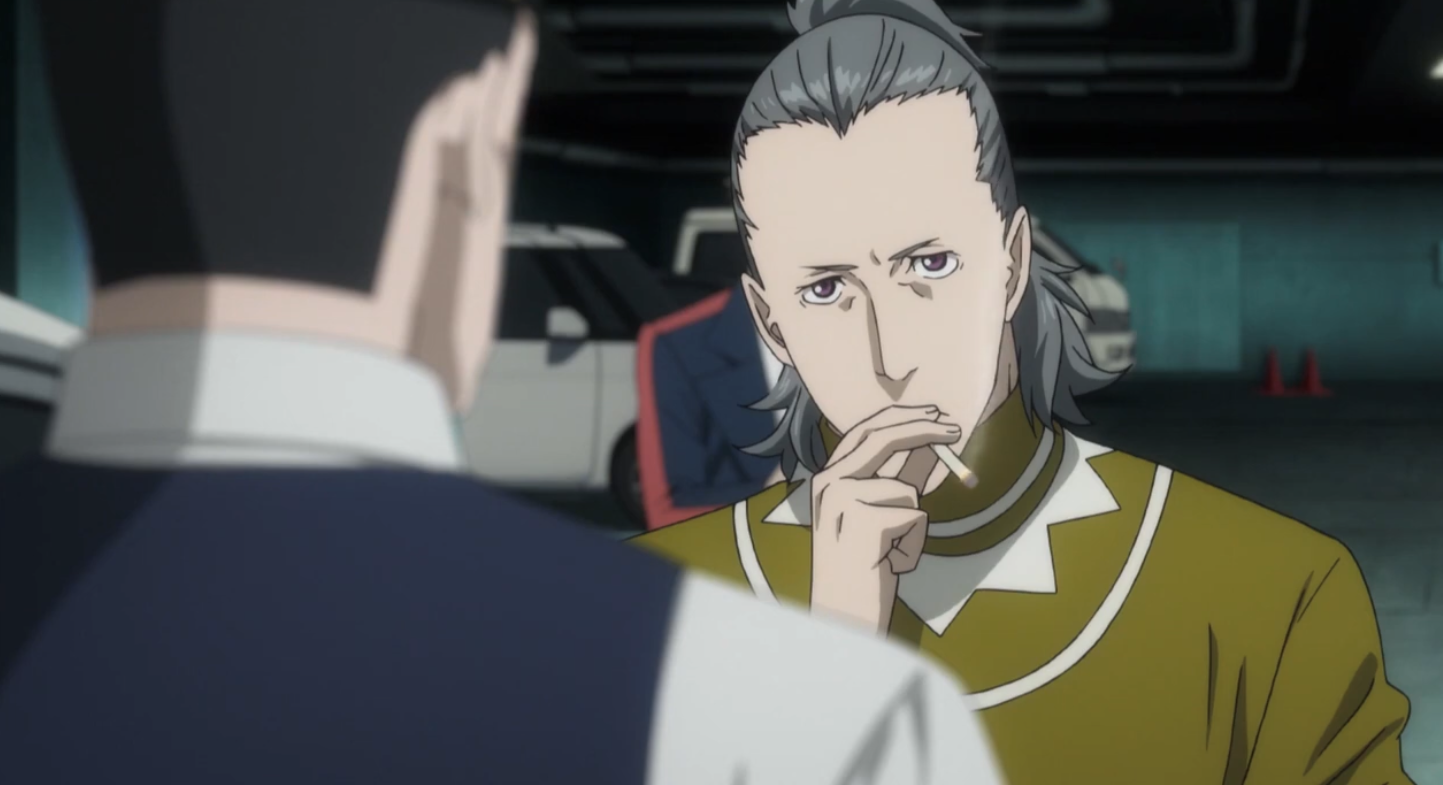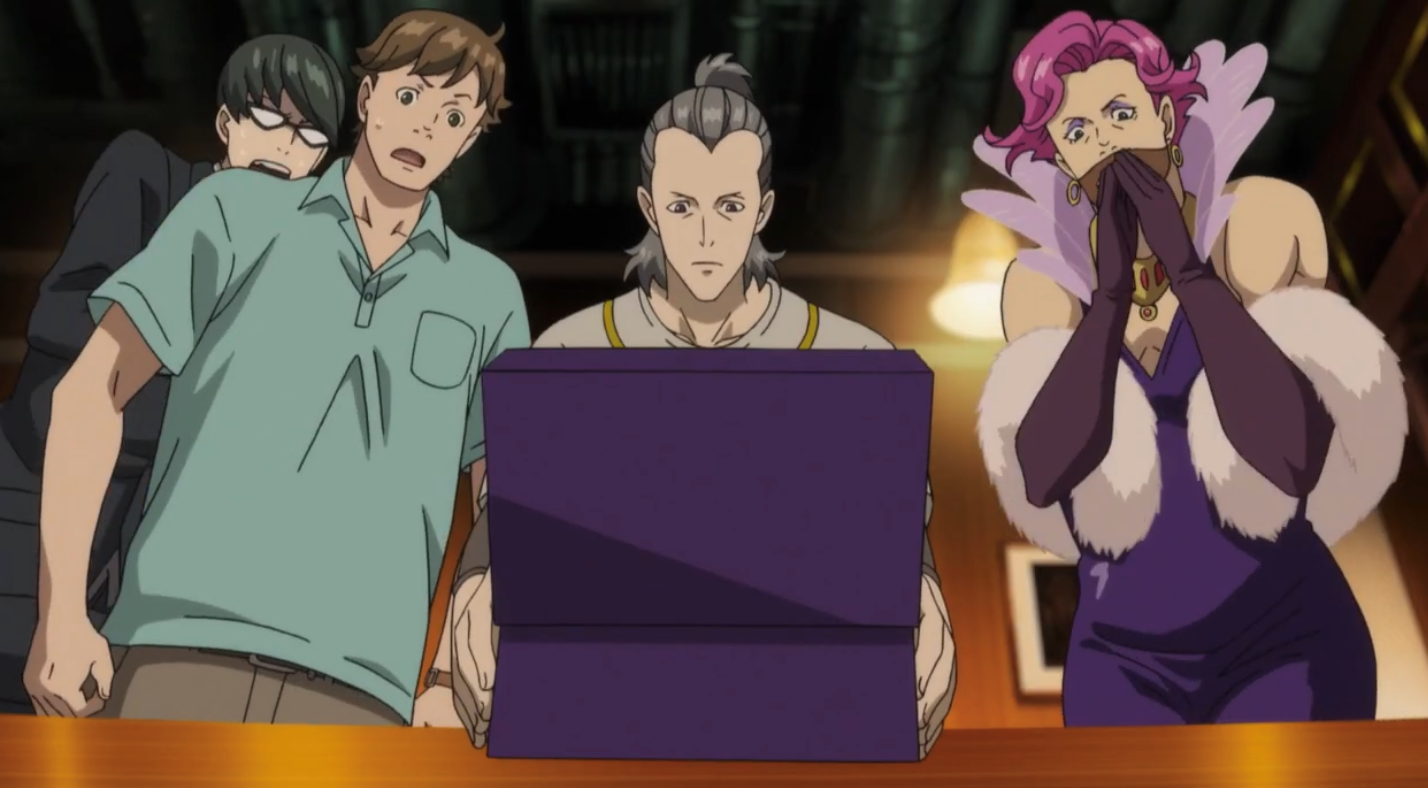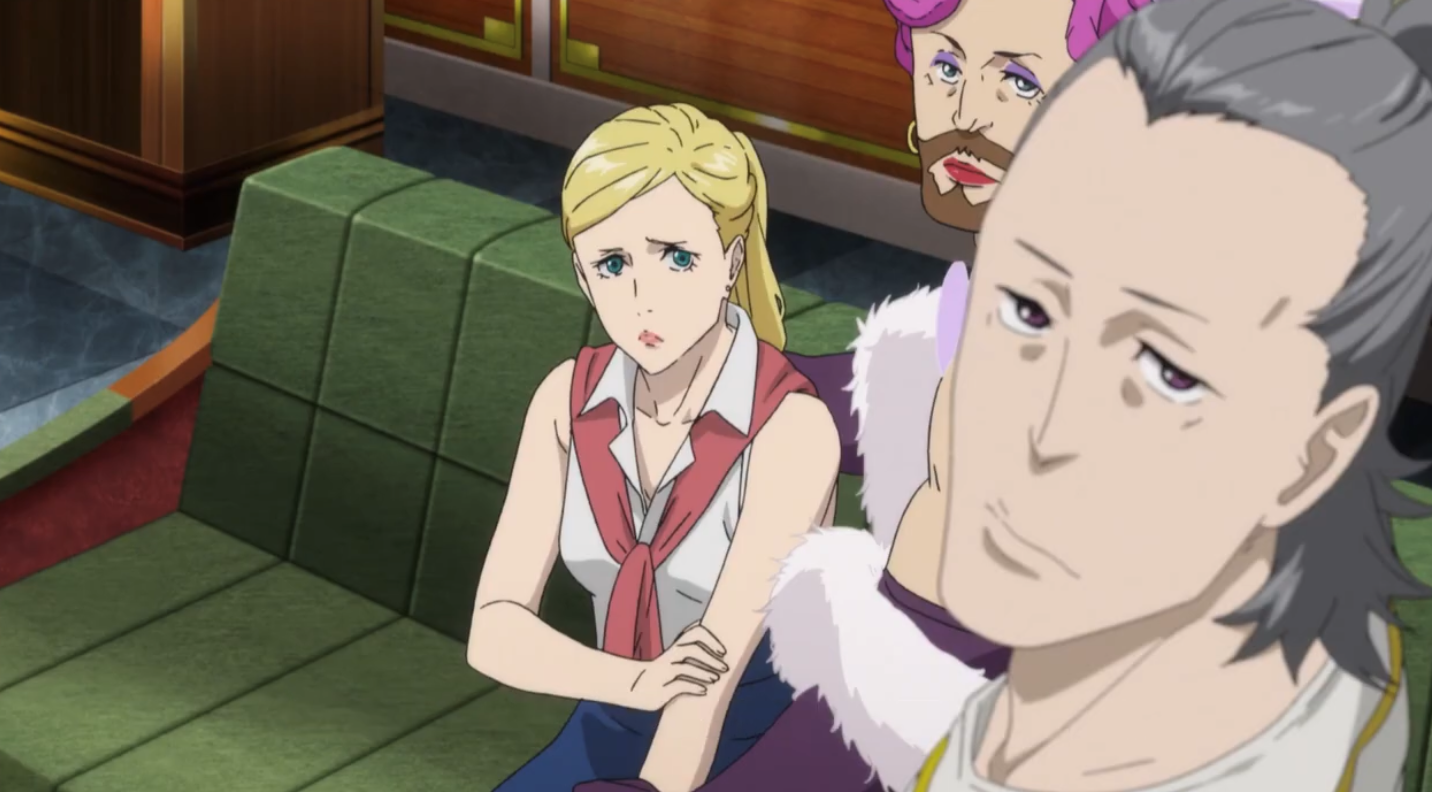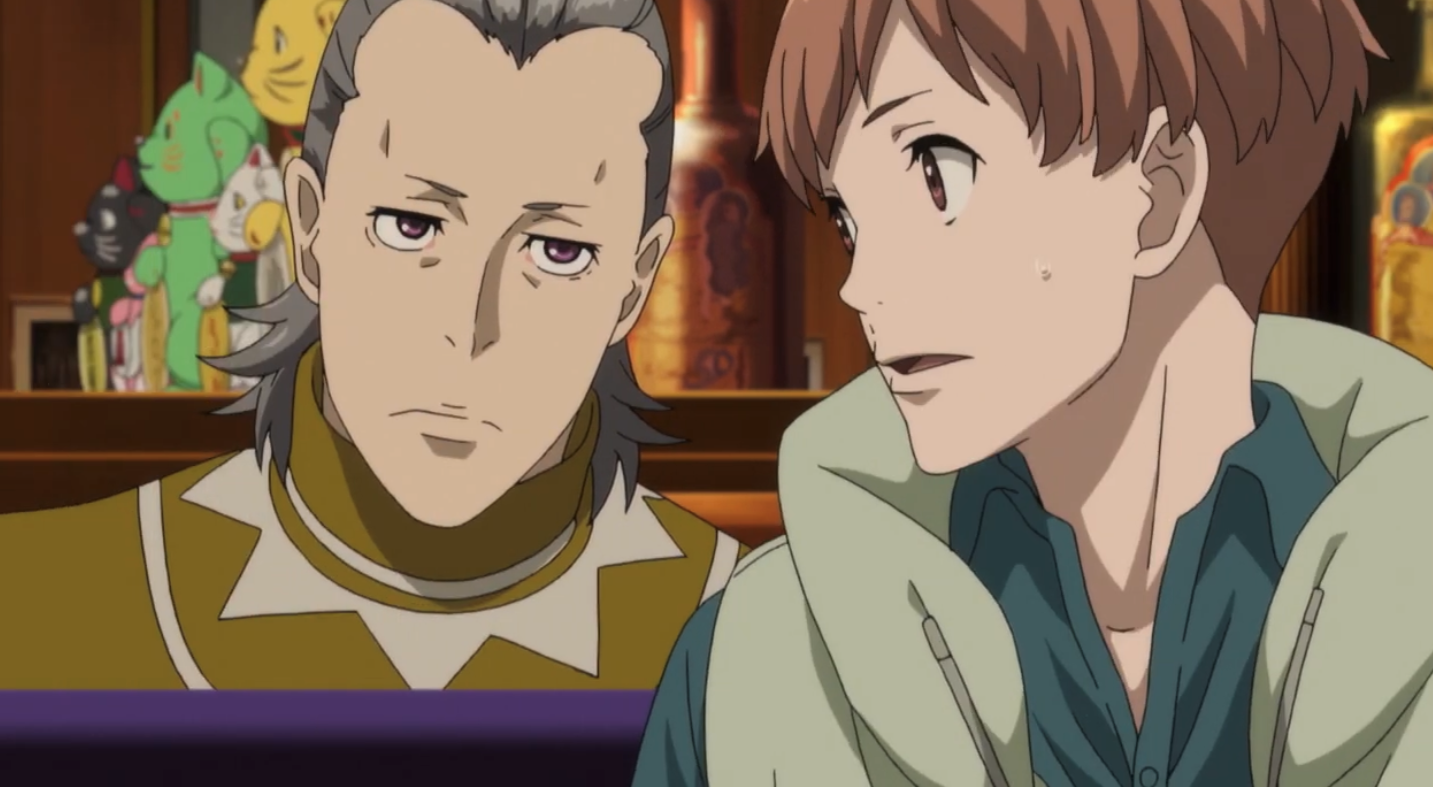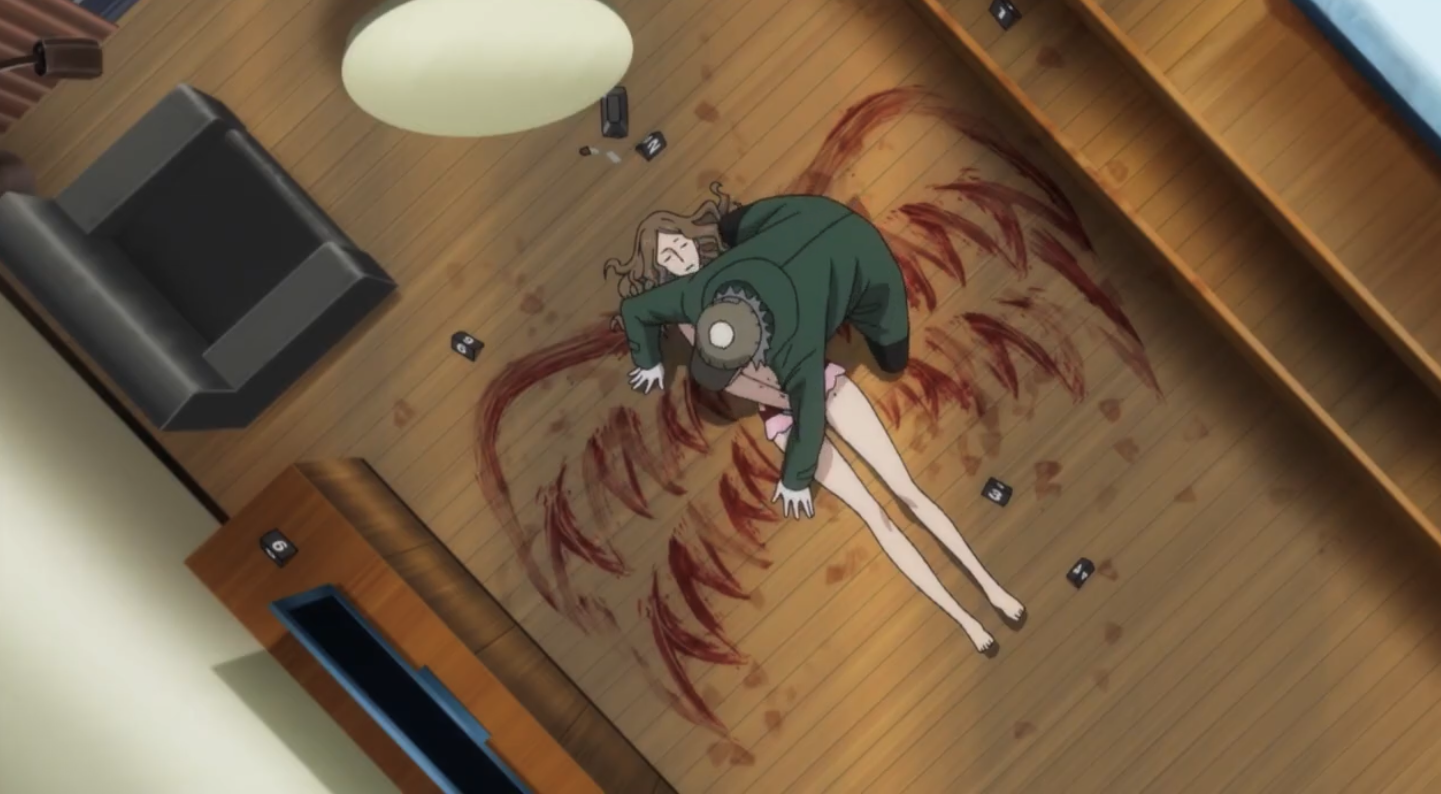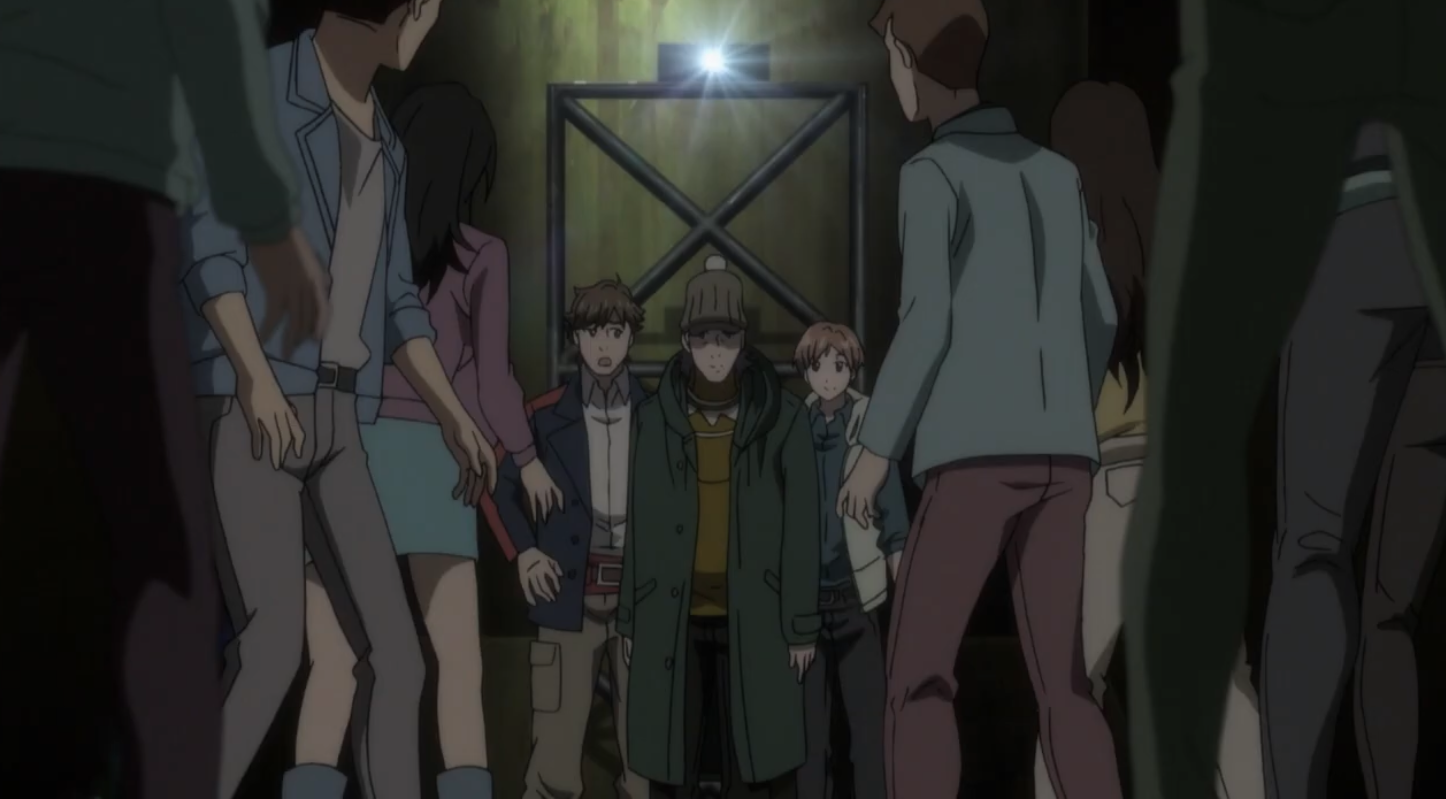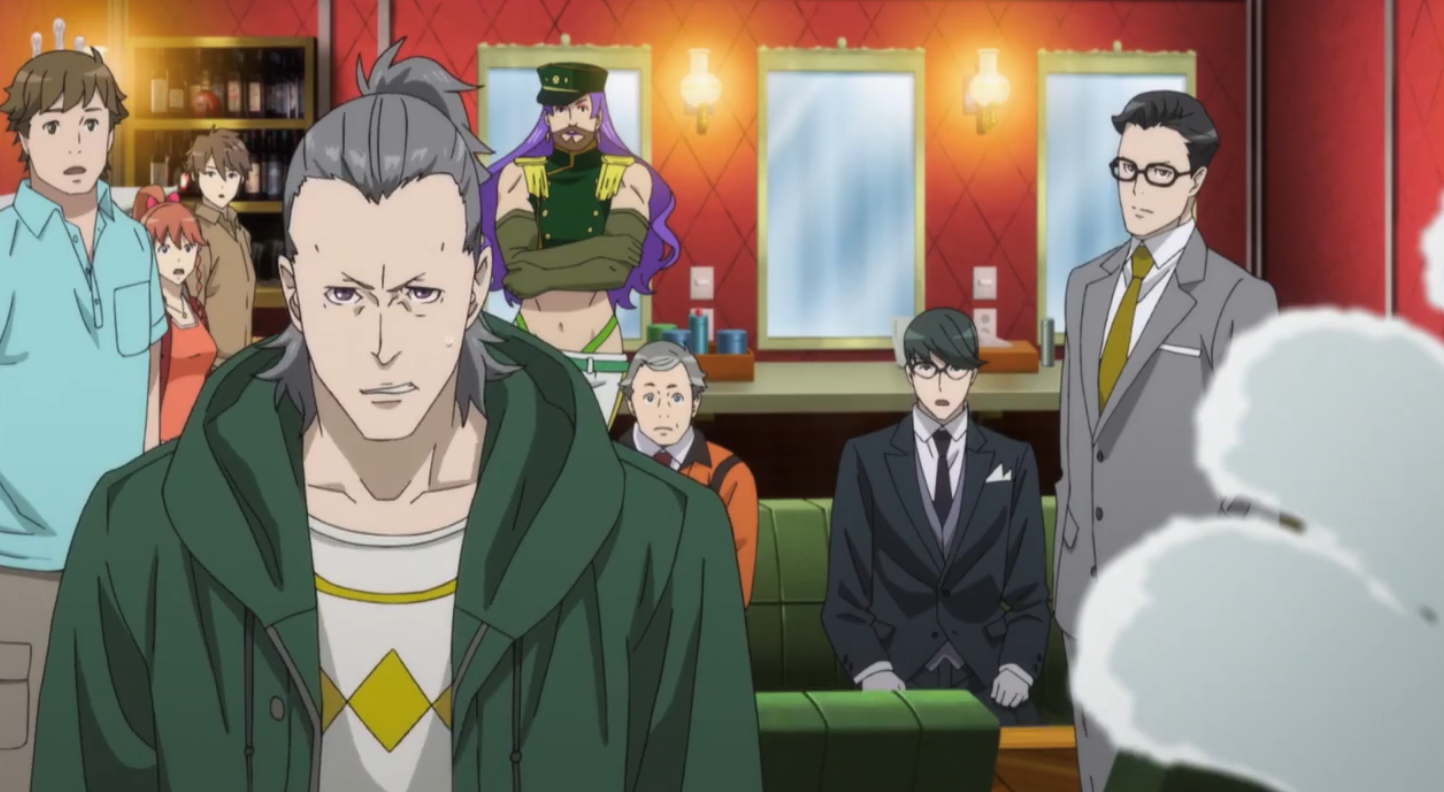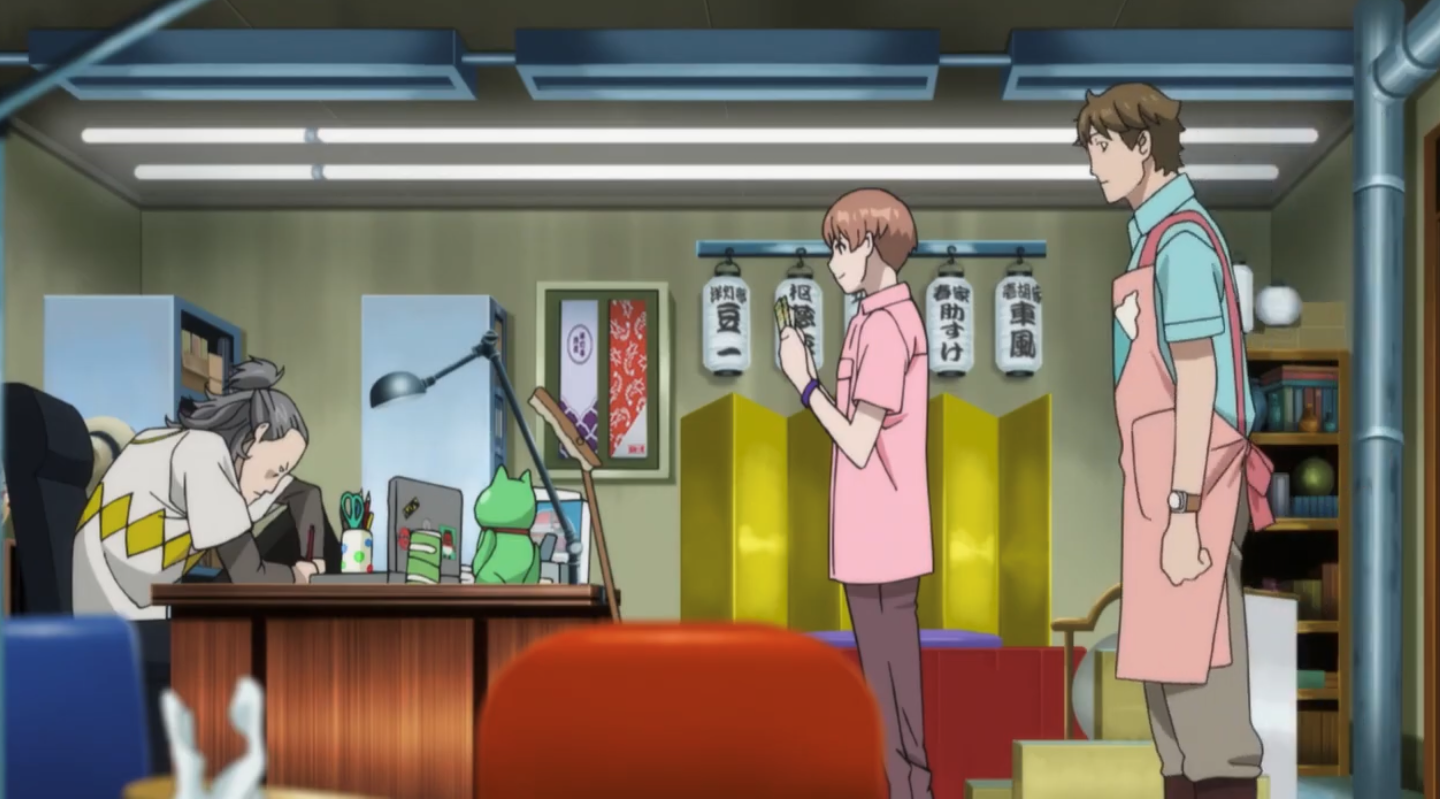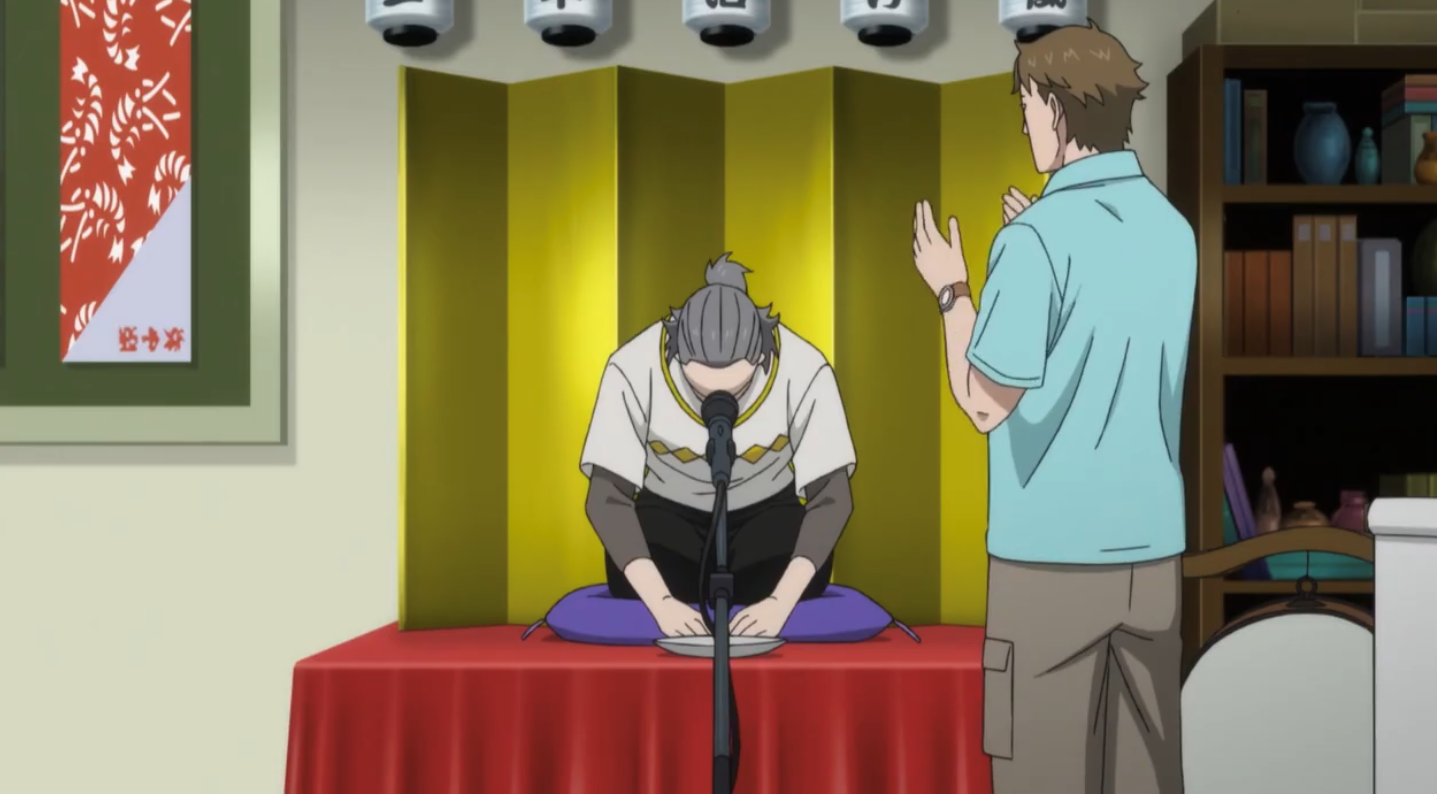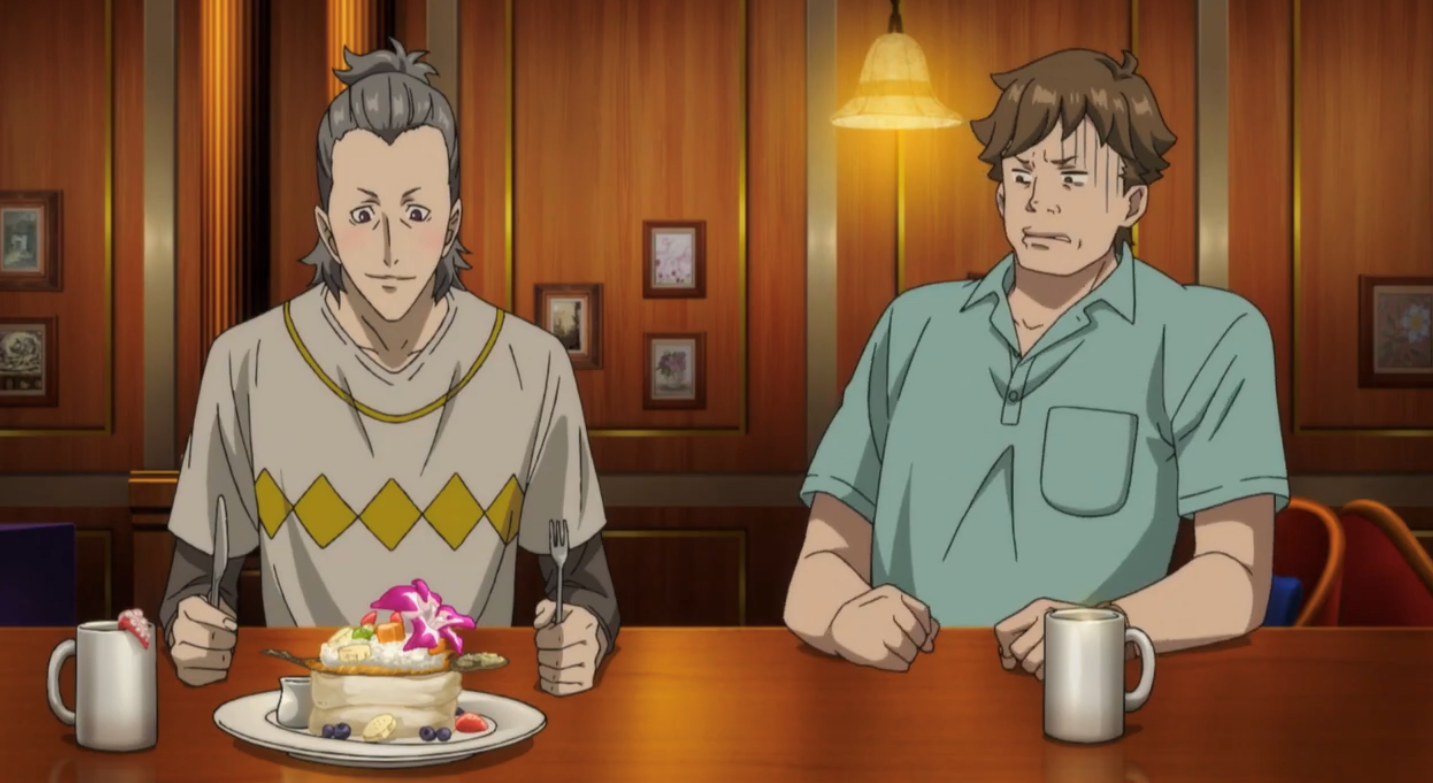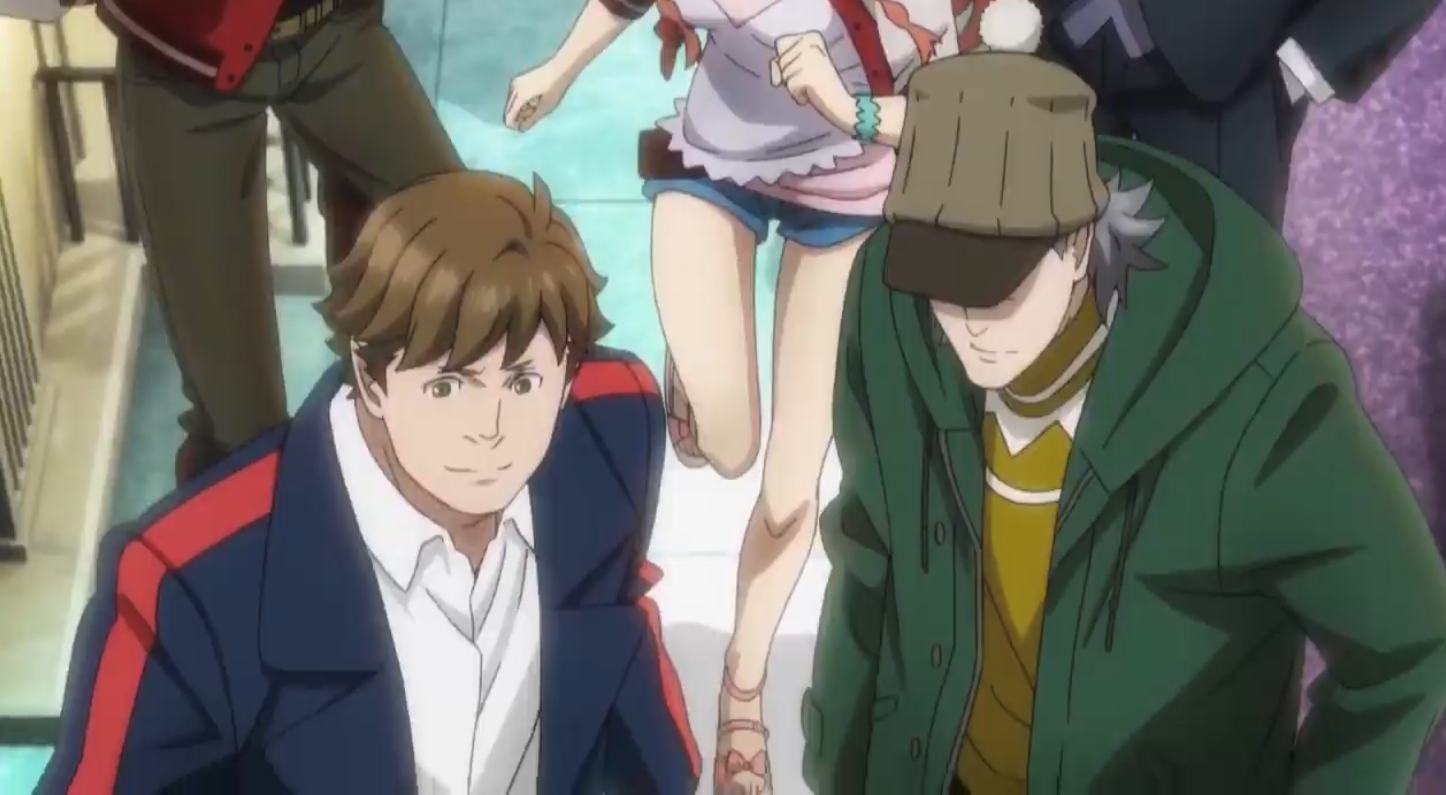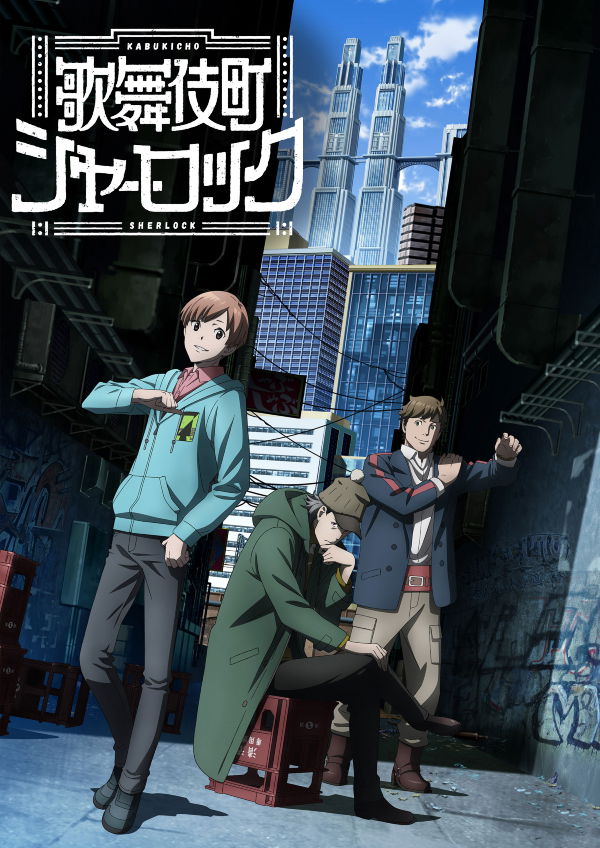
Original Run: October 12, 2019 - March 28, 2020 Number of Episodes: 24 Genre: Comedy, Drama, Mystery
***Warning, the following may contain spoilers for Kabukicho Sherlock. Reader discretion is advised.***
Series Synopsis
The Shinjuku district of Tokyo is split between the affluent west side and the far more corrupted east side. And in the center of the east is the infamous Kabukicho, home of host clubs, crime, and debauchery. This place is also the headquarters of the famed Pipe Cat Bar and its crack team of detectives who can solve any mystery thrown at them.
Such a promise is what brings Doctor John Watson (voiced by Yuuichi Nakamura) to the east side and into the very heart of Kabukicho. He fears his life is being targeted and was advised to seek out Pipe Cat’s best operative, the slightly odd but unquestionably brilliant Sherlock Holmes (voiced by Katsuyuki Konishi).
Watson refuses to leave Sherlock’s side until his case is heard. In the meantime, the good doctor and the unstoppable super sleuth travel all around Kabukicho, solving crimes ranging from vandalism, theft, and murder. They are often joined by the other members of Pipe Cat, as well as the well-informed street leader of Shinjuku, the young James Moriarty (voiced by Seiichirou Yamashita).
Series Positives
This review is in a precarious state, for I am in two minds regarding this show. On the one hand, we must try to look at Kabukicho Sherlock’s merits as a standalone series. On the other hand, this story does take the name Sherlock Holmes, and that is a title that isn’t simply unignorable, particularly for fans of the canon, which I include myself in that assessment.
Be that as it may, on both accounts, this show never sparked. Don’t get me wrong, Kabukicho Sherlock pointed in the right direction. The problem was, it kept staling at the gate and never got moving satisfyingly. To this series’s credit, though, there were a handful of clever nods to Sherlockian lore, for instance:
- Sherlock employed a group of street urchins as informants.
- Sherlock was all over the place when investigating for clues.
- Irene Adler (voiced by Maaya Sakamoto) was a legitimate equal to Sherlock’s intellect and deduction abilities.
- Sherlock often worked for next to nothing provided a case was interesting to him.
In those respects, Kabukicho Sherlock was a proper attempt at a Sherlock Holmes narrative, and not a pure waste of time.
Along with that, this series did well to account for the change in setting. We were not on the streets of nineteenth-century London, and the characters, cases, and details reflected that. Although the show was a hyper-fictionalization of Shinjuku’s Kabukichou district (a place I have been to many times), the brightly lit flamboyance of the area wasn’t coming from nothing.
The idea that Sherlock and Watson lived above a bar run by famed hostess and diva Ms. Hudson, and not in a flat owned by the sweetly-old-lady version depicted in the stories, wasn’t outrageous. Sherlock Holmes portrayed as a hikikomori-like recluse, was well in line with the unorthodox character living on Baker Street. Hell, even the existence of the notorious Jack the Ripper (who has nothing to do with Sherlock Holmes), didn’t feel out of place.
So, yeah, Kabukicho Sherlock got many things right.
Additionally, three characters stood out in this series because they were faithful (or well-adapted) versions of their original incarnations and worked wonderfully for this particular story.
The first is the already mentioned Irene Adler. Despite appearing in only one of Arthur Conan Doyal’s works, Adler is a prominent figure in the Sherlockian universe because she was one of only a handful of people ever to outwit the famous detective. In Kabukicho Sherlock, Adler was much more involved with the plot, but the mystic that has made her such an endearing character was very much alive. While other detectives in this series could only put clues together seconds after Sherlock, Adler was completely in-step with him. As a result, she was both a formidable foe and an indispensable ally.
The second was Sherlock himself. Despite my reservations about this series, I can’t deny that it had adapted the legendary crimefighter very well – to a point. When Sherlock was investigating, laying traps, and working ten steps ahead of his enemies, he was what we have come to expect from the character. Unfortunately, there was one classic Sherlock trait this show blundered, but more on that in the next section.
The third – and please give me the chance to explain myself – was James Moriarty.
Let’s take away the Sherlock Holmes label. As a character in a standalone show, the story of James Moriarty was the most redeemable thing about this series. Now, I have to assume that this character’s name instantly gives away what his role in the show was. If for some reason, you don’t know, in the original stories, Professor James Moriarty is the arch-nemesis to Sherlock Holmes.
Kabukicho Sherlock’s take on Moriarty turned him into a much more tragic character. He didn’t start off as a terrifying crime boss, like most of his other incarnations. Instead, this series depicted his fall, and we got to see his transformation into a villain. How everything played out was a strength of the show. The only problem I have with this is:
I wish Kabukicho Sherlock hadn’t called this character Moriarty.
Series Negatives
How does a series about Sherlock Holmes screw up one of the best aspects of any Sherlock Holmes story? Kabukicho Sherlock having the detective give his signature reveals as a rakugo performance was a poor choice. I’m not sure if Sherlock’s bits were any good by rakugo standards, but I can tell you this: It was incredibly gimmicky.
Plus, I don’t think I would have gone with Sherlock putting sweet peaches over his fried rice to illustrate his odd behavior. However, I suppose doing that was far tamer than depicting his well-documented drug abuse. Then again, given how dark this series was, why didn’t the story just go with that?
Oh boy, that was a problem. The balance between comedy and drama in this show might as well have been nonexistent. Kabukicho Sherlock would often go from gruesome murder to nut-shot at the drop of a hat. And let’s not even begin to discuss the drastic change in the atmosphere that took place between the first and last episodes.
Then there were the other characters I didn’t talk about in the previous section. The vast majority of this show’s cast was either paying cheap lip service, utterly forgettable, or flat-out annoying.
Let’s begin with Sherlock’s brother Mycroft Holmes (voiced by Ryotaro Okiayu). This might seem like an obscure character to focus on, given that he was barely in the show. That’s because it is, and that is my point. A bit of my Sherlock-fandom is coming out with this, but let’s think for a second who Mycroft is, or more specifically, how Sherlock sees Mycroft.
There are few people Sherlock Holmes recognizes as his intellectual equal, and there is only one who he considers his superior. To Sherlock, Mycroft was the true genius of the Holmes family. For problems Sherlock could solve in mere moments, Mycroft could figure out instantly. That was not the Mycroft seen in Kabukicho Sherlock. What we got was a forced-in reference to the original stories, as well as an indication that this series didn’t fully grasp the possibilities available to it.
Moving on from Mycroft, all the other detectives of the Pipe Cat Bar were irrelevant. I’m not sure why they were here. They did nothing for the story. Sherlock was always the one who solved the case; so, I don’t know how any of them ever made money. These people were just needless filler that sometimes got a side plot that, again, was mostly overshadowed by Sherlock’s presence. To best describe it, these characters felt like this show’s attempt to anime-ify the Sherlock Holmes story; and it didn’t work.
Next, there was Moriarty, and as a heads up, I am coming at this as a fan.
Professor James Moriarty is a great character because he isn’t someone who is just as smart as Sherlock Holmes. He’s the only person the detective fears. Moriarty is dangerous, cruel, brutal, and does everything he can to stay in the shadows. The Kabukicho Sherlock version, though well-done, shouldn’t have had the name Moriarty because he never quite matched that same threat level.
Also, using hypnosis to force people to kill themselves doesn’t work, and it is far too lazy of a move to be associated with the Napoleon of crime.
Lastly, there was John Watson. His Kabukicho Sherlock version was terrible. He was more like a needy child instead of the loyal partner of the great Sherlock Holmes. Watson is one-half of the most inseparable duos ever to exist. But if this show is your only basis for the character, then you might think Watson is weak, clingy, dangerously naïve, and most offensively of all, expendable.
Apart from this series’s brand of weirdness being more irritating than exciting, the biggest thing Kabukicho Sherlock struggled with was using its characters to tell a fun mystery story. And that’s sort of an impressive feat given how this show could have pulled inspiration from some of the most thoroughly crafted characters ever to exist in fiction.
Final Thoughts
I think a person who is not a fan of Sherlock Holmes may have a better time with this show than someone who is. However, that then begs the question, “Why would a non-fan watch?”
If this series were better than it was, then that would have been an easy answer. Unfortunately, this show relied a little too much on name recognition and didn’t spend enough time crafting something worth watching.
Although there were decent elements throughout, the final product fell short.
Kabukicho Sherlock is a series you can skip.
And if you’ve liked what you read and want more anime content, please follow me at LofZOdyssey Anime Reviews or on Twitter @thelofzodyssey.
Also, be sure to subscribe here at The Outerhaven and never miss any of your video game, anime, and other nerdom news and content.
I’m LofZOdyssey, and I will see you next time.


